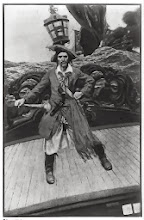Possession

I began this essay and am not sure that I am done with it, even with my own thoughts on its point. I'll post it anyway, though, in the hope that another's thoughts may render me more eloquent...
In 1983 Paul Hewson, better known as Bono, coined the lyric “And the battle's just begun, to claim the victory Jesus won”. It was a line intended to shame both the Protestant and Catholic sides of the religious struggle in Northern Ireland, through its simplicity and its truth. In its naked, common-sense approach, however, the line also extends past its Christian context and symbolizes the crux of so many of the world’s religious conflicts: Possession.
There is something magic about ownership. It is a primal urge, born out of the fear of loss, and ultimately of the potentially tenuous nature of survival. If we do not obtain food, clothing, or shelter we will perish. How much more pressing is the drive to hold the key to eternal life, to extend one’s existence and lessen the fear of the great unknown?
On a physical level, the things we must produce for survival in this world have been translated into the language of commerce. Money is no more than a symbol of work, or of possessions. It is the great middleman which separates our physical toil from the fruit of our labors, allowing us to instead reap whatever reward we desire. It is an enabler, a middle-man, and, like the internet today, an accelerator of anonymity. If I hold money, who is to question how I made it? Did I work hard? Do I deserve its weight in the luxuries of trade? No proper merchant would question it.
In the Western Judeo-Christian tradition, money is really the loophole to the biblical curse: to atone for his sins Adam must work the land all his days, but not if he invests well or wins the lottery. In the undercurrent of logic here we begin to comprehend how some could see the dark attraction of a life of piracy on the high seas. Without God or country, and with money in your pocket, the yoke is broken.
It is, to some extent, this logic which Voltaire put into play in his examination of English religious tolerance in the reformation. Expounding on the subject in his Philosophical letters on the English, Voltaire points out the fact that the English do not embrace each other’s differing sects, but they do have a more developed economic system which justifies tolerance. While France still tried to recover from centuries of bitter religious warfare between its own populace, the English were learning to live with one another and to accept the more liberal ideas of human rights and the freedom of ideas. The concept that ideas could not be forcefully imposed upon a people was a major step, and it was driven, according to Voltaire, by economic progress best represented by the London Stock exchange. Voltaire writes:
"Go into the Exchange in London, that place more venerable than many a court, and you will see representatives of all the nations assembled there for the profit of mankind. There the Jew, the Mahometan, and the Christian deal with one another as if they were of the same religion, and reserve the name of infidel for those who go bankrupt."
While it serves a stabilizing role on both a political and a social level, the possession of money and a reliable means of commerce is hardly a source of spiritual satisfaction to the individual. Though he has himself abandoned the church, Umberto Eco relays this point well in his essay, On God and Dan Brown, when he states:
“…if you believe in money alone, then sooner or later, you discover money's great limitation: it is unable to justify the fact that you are a mortal animal. Indeed, the more you try escape that fact, the more you are forced to realise that your possessions can't make sense of your death. It is the role of religion to provide that justification. Religions are systems of belief that enable human beings to justify their existence and which reconcile us to death.”
So man is left, ultimately, to struggle for that greatest of possessions – faith. And faith is really the ability to be confident. It is a confidence that one is right, a confidence one possesses knowledge of all the mysteries, and likewise a confidence that one must live by the tenets of that faith to be saved by it. Why is it, then, that men so often jeopardize the high ideals of faith during the pursuit of religious ends?
Inevitably, we must come to accept the fact that all human institutions are plagued by the same corruption: the human element. Our greed, pride, passion, self-absorption, lack of confidence, you name it – it will creep its way into the most noble of causes, and it has for hundreds of years. All our works are tainted. And that which fosters those flaws is so often the emotion which drove our earliest quests for survival: fear. Fear, and the instinctive reaction to conquer that fear through Possession.


